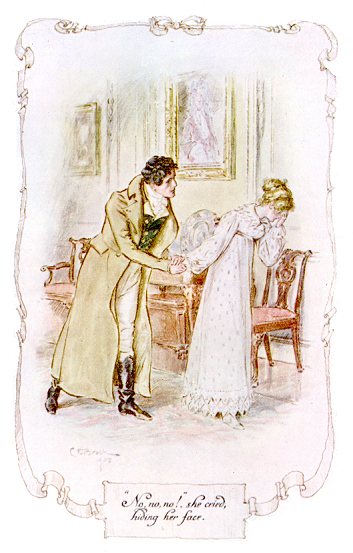10th March, 2009
I should be marking because I have just collected 90 pieces of work this week (the downside of having multiple, 30+ junior classes) but I can’t be stuffed and I want to write.
I am settling into 'new school' now that I am here five days a week, which is both good and bad. I am glad to be in the same place every day (kind of), but I am finding the place a bit challenging, in a number of ways. The glossy, pretty picture that I was shown at my interview of those ‘excellent’ results and that angelic year 7 class has certainly faded, I am starting to think that this school is just plain weird. I have certainly been to Mass more times in the past two weeks (Lent is to blame) than I have in the last five or so years. I still remember everything. But that isn’t the weird part. The weird part is the way that people interact within this school community, what is expected of each individual, and what ‘teaching and learning’ actually means here.
The last two weeks have been a case in point. GCSE coursework (for Year 11 students) was due at the end of last week, and consequently my colleagues have been running around like Molly (my dog) after some cruel person hides her ball. The reason for this is that they are not simply having to chase students for work that should have been completed during the last few weeks, but coursework that may have been set sometime during Year 10 (how re-doing an oral on Romeo and Juliet six months after the text was studied is actually going to help anyone is beyond me). There are no penalties set by the school for late coursework, or by the Welsh board, it seems, so as long as students get it in before final deadline (ie, the end of Year 11), everything is all hunky dory. In many instances, the students that teachers have been chasing are repeating coursework, because they did not receive their ‘target’ grade the first time around (or the second) and are therefore asked to resubmit. At a first glance, this might sound like a policy with student learning at the centre, right? Let’s give them opportunities to develop their skills over time, and learn from their mistakes? Wrong. It is patently obvious that the only reason for all of this pressure on teachers is the school’s desperation to get as many A-C grades as possible in order to look good in the league tables. Not that this is just the school’s fault, of course. The Education system has become so entrenched in this culture of statistics and numerical values and quantitative data that little else seems to matter. Which is why the school deems it necessary to hold staff meetings in which individual teachers are asked why student X did not receive a C for this task and whether the teacher thinks it would be at all possible to lift their result (please, pretty please?). Only if it is justified, of course (wink, wink). The result of this is that students are encouraged to take absolutely no responsibility for their own learning, and teachers have to shoulder it all.
Anyway, I was disappointed at first when I heard that I wouldn’t have any senior classes as part of my load, but after seeing the stress that people have been under during the past few weeks I’m not at all sorry now.
Some days, I feel like Alice in Wonderland. For example, this is the gist of a staffroom conversation that I overheard between two colleagues (one local and one from further afield):
A: Is this the criteria for the speaking and listening task?
B: Yes.
A: But... this criteria only refers to content, not skills. Can I change it, so I can give them some more useful feedback?
B: Well, that’s made from the official National Curriculum.
A: Yes, but can I add to it, and clarify some things?
B: It’s from the National Curriculum.
A: But it doesn’t actually say anything about speaking skills.
B: But that’s what’s in the documentation.
A: Ok, but...
B: It’s just the way it is.
See? Straight out of Lewis Carroll.
Speaking of assessment, well, you probably don’t want to get me started. You probably don’t want to hear about any of this, actually. How the kids can make head or tail out of the results they get when I can’t is beyond me. There are outcomes based criteria grids for each task, which is fine, but the grades that actually come out of them seem to be determined largely by gut instinct. But the thing that really annoys me is the complete lack of appreciation of how the reading and writing processes are connected. An assessment task is classified as either a ‘reading’ or a ‘writing’ task. A text response essay, for example, is a ‘reading’ task. All of criteria relate strictly to a very narrow definition of ‘reading’ and the fact that it is in fact a piece of writing that the student has produced and is also learning about writing in the process has simply no bearing on their assessment. Apparently, I’m not supposed to take structure, language, vocabulary, etc, into account, even though that is how the student is making meaning from the text that they have read. It’s completely infuriating, because it’s just so blatantly WRONG.
In the classroom, I am having to change my teaching style completely, but not in a way that I feel very happy about. I am having to design lessons that are far more tightly structured than I would like because that is what the students are used to and that seems to be, for the time being at least, all that they can cope with. It is taking me a lot longer to train them up than I was hoping for! It hasn’t helped matters that I am their third teacher for the year and the first two were fairly clueless, so I’m trying not shoulder too much concern over it myself (but you know me, I can’t help it). They are so dependent on the teacher, and when you take the culture of the school into account and some of the issues that I’ve already mentioned, it seems obvious why this is the case. It’s frustrating though. I am finding group work and even discussion close to impossible with a couple of my classes. Not all of them, but enough of them for it to be terribly frustrating. They find listening terribly difficult, to the point where I am wondering if it is actually a cultural thing, since kids were similar at the other schools where I have taught over here as well. It could be my fault, I’m out of practice with teaching 13 year olds, but I don’t think it’s that.
Oh, and having basically no access to technology is driving me insane, but that’s a whole other letter.
Anyway, I am not unhappy, I’m doing ok, I’m making friends and having fun, and I’m not spending all my time working, or at least I haven’t been- the next couple of weeks might be a bit of a slog, but Easter is less than four weeks away. But, I couldn’t teach if I didn’t care about what I was doing, either. Who would choose this life if they didn’t care?!
Bring on Italy at Easter!







 Hopefully, they will prove the poet wrong.
Hopefully, they will prove the poet wrong.


















